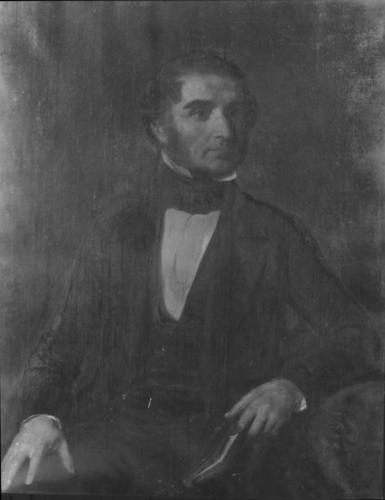Baron Justus von Liebig (1803-73) c.1850
Oil on canvas | 106.3 x 85.1 cm (support, canvas/panel/stretcher external) | RCIN 406528
-
Heinrich Hoffmann (1824-1911) was initially a pupil of the copper engraver Ernst Rauch in Darmstadt, before entering the Academy in Düsseldorf in 1842, where he studied painting under Theodor Hildebrandt. After working in the studio of Wilhelm von Schadow, he traveled to the Netherlands and France to further his artistic studies. After a period in Munich he returned to Darmstadt in 1848, and began to focus on portraiture. The political activities of his family enabled access to many influential persons of the time, and this allowed Heinrich to execute two portraits of the statesman Heinrich von Gagern, and this portrait of Justus von Liebig.
Justus Freiherr von Liebig (1803-73) was a German chemist who was instumental in the development of agricultural and biological chemistry. As a professor at the University of Giessen he devised the modern laboratory-oriented teaching method. He is recognised as one of the greatest chemistry teachers, in addition to being hailed as the 'father of the fertilizer industry' for his discovery of nitrogen as an essential plant nutrient. After World War II, the University of Giessen was officially renamed after him, Justus-Liebig-Universität Giessen.
The sitter is shown in three-quarter length, seated, turned slightly to the left, with his head turned three quarters to the right; wearing a black morning jacket, waistcoat and trousers, white shirt and black stock. His left elbow rests on a surface, and the hand holds a book, with one finger inserted as if to mark the page at which he will continue reading.Provenance
Purchased by Prince Albert, 1853; recorded at Buckingham Palace in 1875
-
Creator(s)
Acquirer(s)
-
Medium and techniques
Oil on canvas
Measurements
106.3 x 85.1 cm (support, canvas/panel/stretcher external)
136.3 x 116.3 x 10.5 cm (frame, external)
Category
Object type(s)








